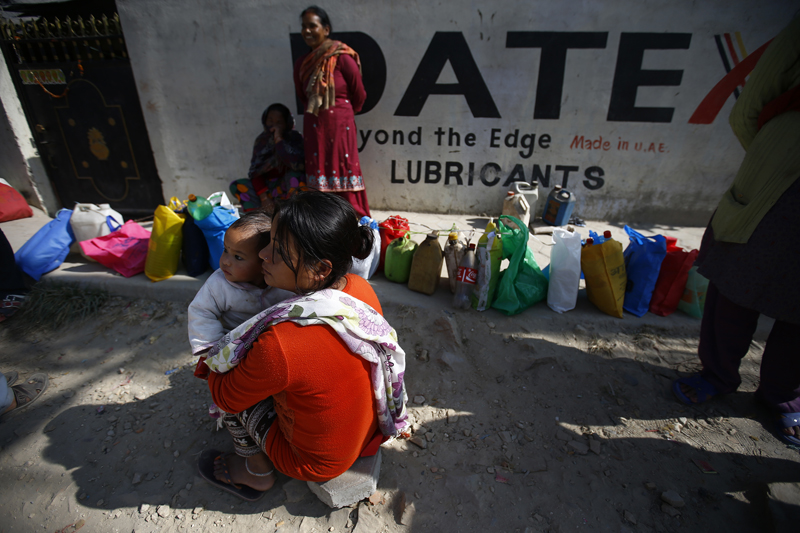Nepal crisis puts over 30 lakh children at risk of disease and death, warns UNICEF
KATHMANDU: The United Nations Children's Fund (UNICEF) warned that more than three million children under the age of 5 in Nepal are at risk of death or disease during the harsh winter months due to a severe shortage of fuel, food, medicines and vaccines.
Issuing a press statement, the UN agency observed, "The government's regional medical stores have already run out of BCG vaccines against tuberculosis. Stocks of other vaccines and antibiotics are critically low."
"The risks of hypothermia and malnutrition, and the shortfall in life-saving medicines and vaccines, could be a potentially deadly combination for children this winter," said Anthony Lake, UNICEF’s Executive Director, in the statement.
Meanwhile, Lake stated that children affected from the major earthquakes of April and May this year would be the worst hit in the latest disaster.
"During my recent visit to Nepal, I witnessed first-hand the precarious living conditions of many of the earthquake survivors. They could now be facing a new disaster – without adequate food, protection from the cold, or healthcare,” the top official said.
More than 200,000 families affected by the tremors are still living in temporary shelters, at an altitude above 1,500 metres where weather conditions will be harshest this winter, informed UNICEF.
"The 125,000 newborns expected in Nepal in the next two months are also at particular risk. Ambulance services across the country have been hit by the fuel shortage, resulting in a drop in births in hospitals and health centres," it added, "The lack of fuel for heating also increases the risk of hypothermia and death for newborn babies who are not fully capable of controlling their own body temperature."
Meanwhile, the UN agency also warned against increasing use of firewood as an alternative to cooking fuel as it may increase indoor pollution and pneumonia risks.
Karin Hulshof, Regional Director of UNICEF for South Asia, said “Children need to be protected from disease, cold and hunger. UNICEF urges all sides to address the restrictions on essential imports of supplies to Nepal. There is no time to lose."






